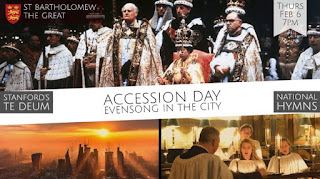The Royal Martyr and the politics of love

It is appropriate that we commemorate the Royal Martyr in winter. The bitter cold that led Charles to don two shirts on the day of his execution has a symbolic significance. With this King's death at - in the words of the Prayer Book office for the day - "the hands of cruel and bloody men", the cold day of Hobbes and Locke had its grey dawn. As George Grant powerfully argued in his English-Speaking Justice , the dismal vision of Hobbesian and Lockean contractualism, in which justice "is conceived as the external convenience of contract" and "has nothing to do with the harmony of the inward life", was to empty of meaning the shared life of the commonweal: Increasingly, the substance of the common good was expressed rationally only as contractual reason, to the exclusion of those loyalties which gave content to that good in more traditional societies. Without "the denser loyalties of existence", in a public realm grown grey by the pa...












